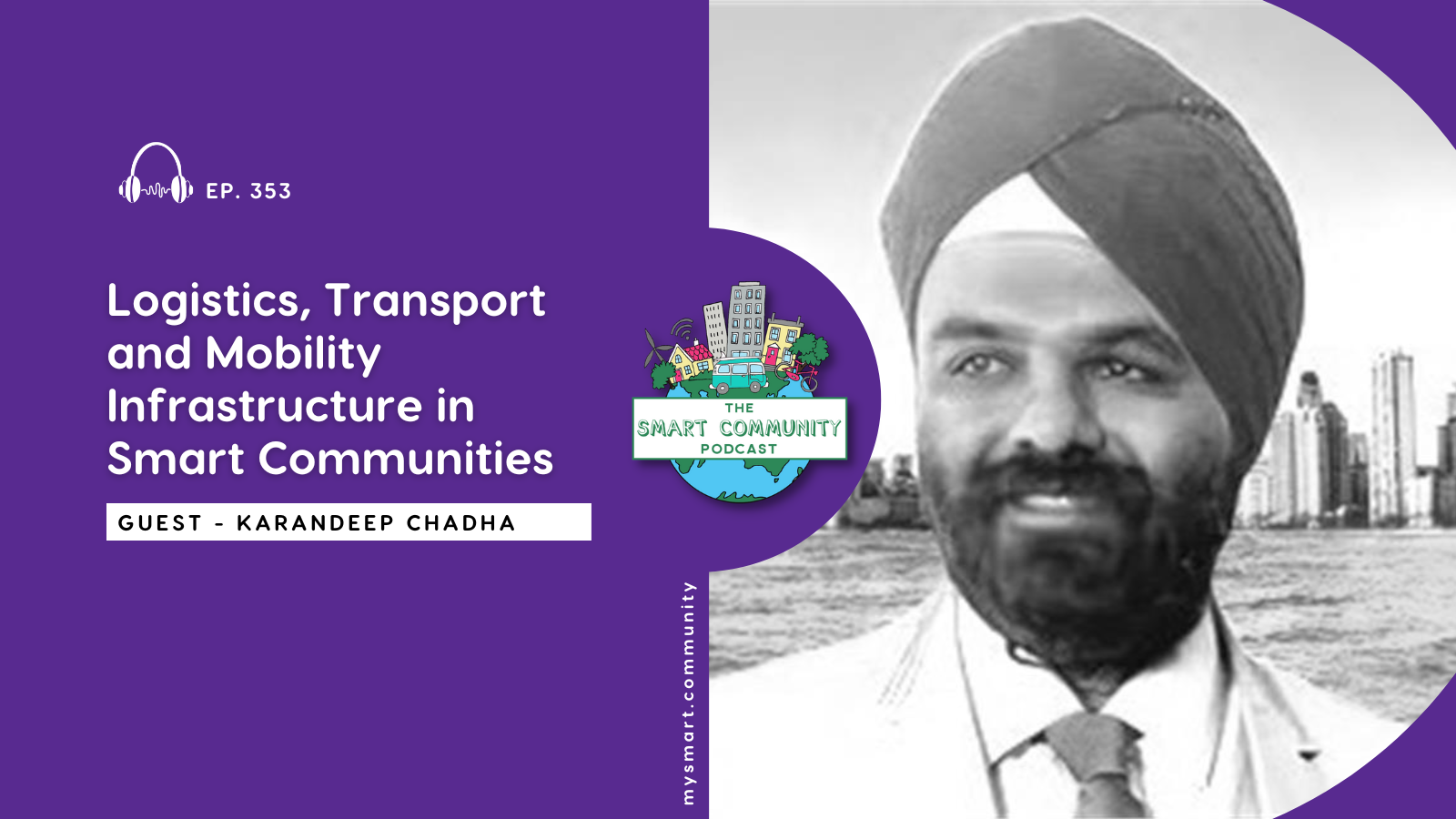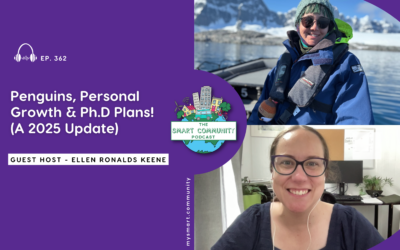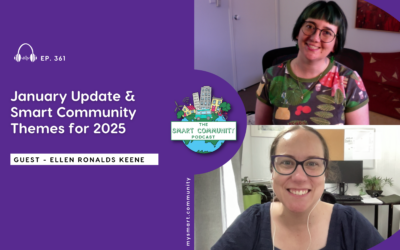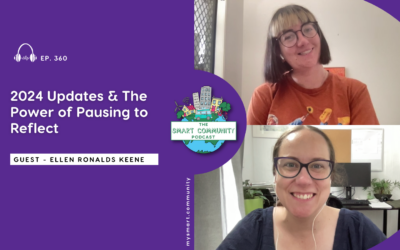Hi #SmartCommunity friends. In this episode of the Smart Community Podcast, I have a great chat with Karandeep Chadha. Karandeep has two decades of diverse work experience in government services, infrastructure asset management, property, procurement, supply chain, consumer goods, technology and financial services industries for top tier Australian, US and European organisations. In this episode Karandeep tells us about his passion for innovation and Smart Cities, and how he ended up in the Smart Community Space.
We talk about the importance of coming back to the business purpose and community requirements when implementing Smart solutions, and why foundational transferable skills are so beneficial considering the broad range of skills needed in the Smart Community. Karandeep tells us about some of the projects he’s been working on, including what he has been learning from New Zealand’s smaller scale ‘do more with less’ approach. We finish our chat discussing the emerging trends of cyber security and data privacy, as well as the need for affordability of Smart initiatives, and why partnering across different sectors and industries is the next step for Smart Communities. As always we hope you enjoyed listening to this episode as much as we enjoyed making it.
Listen here:
What we cover in this episode:
- Karandeep’s background in actuarial studies and statistics, government and financial services and his passion for innovation and data
- What a Smart Community means to Karandeep
- The importance of coming back to the business purpose and community requirements when implementing Smart solutions
- How Karandeep’s varied career led him to the Smart Cities and Communities space
- Why foundational transferable skills are so beneficial considering the broad range of skills needed in the Smart Community
- About some of the projects Karandeep has been working on and his recent trip to the Smart Cities Conference in Auckland, New Zealand
- What Karandeep has been learning from New Zealand’s smaller scale ‘do more with less’ approach to Smart Cities
- The emerging trends of cyber security and data privacy
- The critical need to consider the affordability of Smart initiatives
- Why partnering across different sectors and industries is the next step for Smart Communities
Quotes:
“I’m really someone that likes to think about the business purpose in the requirements, because often we can go down the technology wormhole. And that’s a big wormhole! With so many things happening in digital and AI and deep learning and machine learning and everything else, it’s really the business and the people outcomes that are driving these investment decisions, in my view… it’s really thinking about the business problem.”
“Smart City simulations, and really cool robotics is obviously very exciting. However, it’s really about thinking about what it’s actually there for, what it’s doing, and why we’re doing it. I really like to think about those things.”
“That really high end analytics was my background. And from there, I went into business challenges and problems. And now in strategy. So as I mentioned before, I moved from financial services into FMCG. And then now into property and infrastructure. I did a master’s in information systems… the foundation, in terms of the skill sets, are pretty much transportable across different industries. But I think the Smart Cities industry is a unique one, because it really links a lot of different concepts together.”
“I think it’s really about collaborating and coming up with delivery partners, working across the different industries and sectors. So the university sector, startup scene, associations and groups, industry partners as well as obviously, government, and then also the semi government bodies…It’s really that whole ecosystem, and working in partnership and collaboration, being solution orientated as well.”
“The other area that’s quite important is affordability, particularly in large cities like Sydney, Brisbane, and Melbourne. [For example] if the transport system is expensive, is it really going to be used as much? Or if we have a pay-to-use system, will we get uptake across all of the population that we want? So I think really thinking about those affordability components is quite critical as well.”
Connect:
Connect with Karandeep via LinkedIn
Connect with me via email: hello@mysmart.community
Connect with My Smart Community via LinkedIn or Twitter and watch on YouTube
The Smart Community Podcast is produced by Perk Digital.






0 Comments